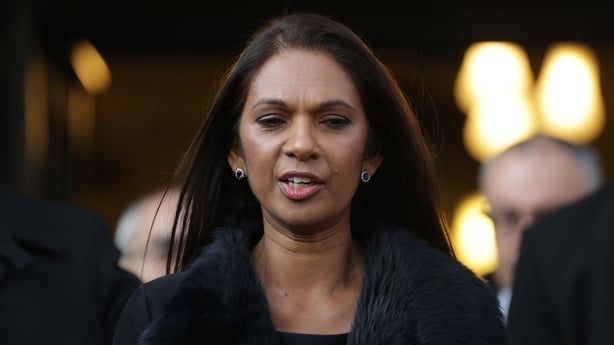British Prime Minister's Boris Johnson's advice to Queen Elizabeth to suspend parliament for five weeks was an "unlawful abuse of power", leading judges in the UK have heard.
The claim was made today at the start of the latest legal challenge to the prime minister's move.
The judicial review application to contest Mr Johnson’s decision has been brought by businesswoman Gina Miller, who successfully challenged the government at the High Court in 2016 over the triggering of the Article 50 process to start the Brexit countdown.

Her case is supported by a number of other parties, including former prime minister John Major.
The action is being contested by Mr Johnson, whose lawyers will argue that the advice given to the Queen was not unlawful.
Lord Pannick QC, representing Ms Miller, told the judges that the prorogation was timed to occur at a period of "acute political crisis".
"There is no justification for closing parliament in this way and, accordingly, it represents an unjustified undermining of parliamentary sovereignty which is the bedrock of our constitution," he said.
"The Prime Minister's decision to prorogue parliament is contrary to constitutional principle, and constitutes an abuse of power."
Lord Pannick submitted that a note "in the Prime Minister's own handwriting" dated 16 August "demonstrates that the Prime Minister simply does not understand the role of parliament during the next five weeks."
The hearing in London comes the day after he fought off a similar action in Scotland. That judgement is to be appealed.
A judge at the Court of Session in Edinburgh ruled that the planned prorogation was lawful.
That challenge had been brought by a cross-party group of 75 MPs and peers.
Lord Doherty said choosing when to prorogue Parliament was for politicians and not the courts, but an appeal against his decision is being heard today.
He ruled: "The power to prorogue is a prerogative power and the prime minister had the vires (powers) to advise the sovereign as to its exercise."
The appeal against that ruling will go before three judges of the Inner House, which is the supreme civil court in Scotland.
Judge Lord Malcolm agreed to timetable the hearing at the earliest point requested, as "expedition is important".
Whatever the outcome of the challenges against the decision to prorogue Parliament, it is likely that the dispute will end up at the UK's highest court.
A spokeswoman for the Supreme Court in London has said that "should any parties choose to appeal to the UK Supreme Court following the prorogation appeal hearings in the lower courts", the court has set aside 17 September "as a date to hear such an appeal".

